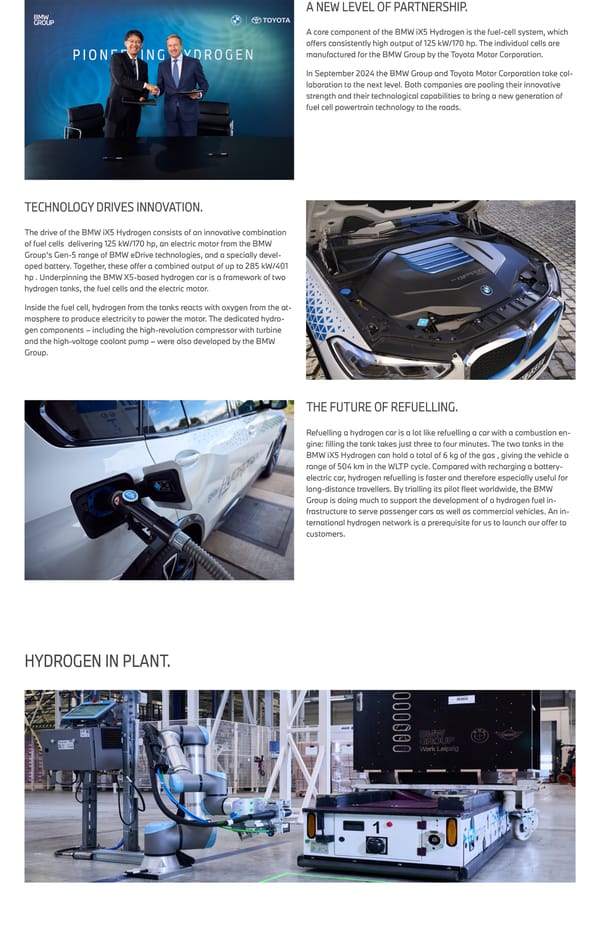A NEW LEVEL OF PARTNERSHIP. A core component of the BMW iX5 Hydrogen is the fuel-cell system, which offers consistently high output of 125 kW/170 hp. The individual cells are manufactured for the BMW Group by the Toyota Motor Corporation. In September 2024 the BMW Group and Toyota Motor Corporation take col- laboration to the next level. Both companies are pooling their innovative strength and their technological capabilities to bring a new generation of fuel cell powertrain technology to the roads. TECHNOLOGY DRIVES INNOVATION. The drive of the BMW iX5 Hydrogen consists of an innovative combination of fuel cells delivering 125 kW/170 hp, an electric motor from the BMW Group’s Gen-5 range of BMW eDrive technologies, and a specially devel- oped battery. Together, these offer a combined output of up to 285 kW/401 hp . Underpinning the BMW X5-based hydrogen car is a framework of two hydrogen tanks, the fuel cells and the electric motor. Inside the fuel cell, hydrogen from the tanks reacts with oxygen from the at- mosphere to produce electricity to power the motor. The dedicated hydro- gen components – including the high-revolution compressor with turbine and the high-voltage coolant pump – were also developed by the BMW Group. THE FUTURE OF REFUELLING. Refuelling a hydrogen car is a lot like refuelling a car with a combustion en- gine: filling the tank takes just three to four minutes. The two tanks in the BMW iX5 Hydrogen can hold a total of 6 kg of the gas , giving the vehicle a range of 504 km in the WLTP cycle. Compared with recharging a battery- electric car, hydrogen refuelling is faster and therefore especially useful for long-distance travellers. By trialling its pilot fleet worldwide, the BMW Group is doing much to support the development of a hydrogen fuel in- frastructure to serve passenger cars as well as commercial vehicles. An in- ternational hydrogen network is a prerequisite for us to launch our offer to customers. HYDROGEN IN PLANT.
 BMW Hydrogen Technology Overview Page 3 Page 5
BMW Hydrogen Technology Overview Page 3 Page 5